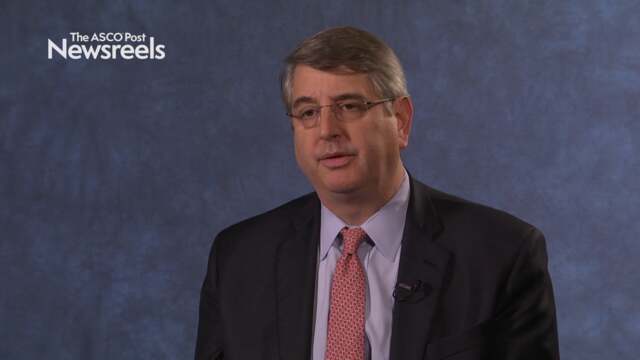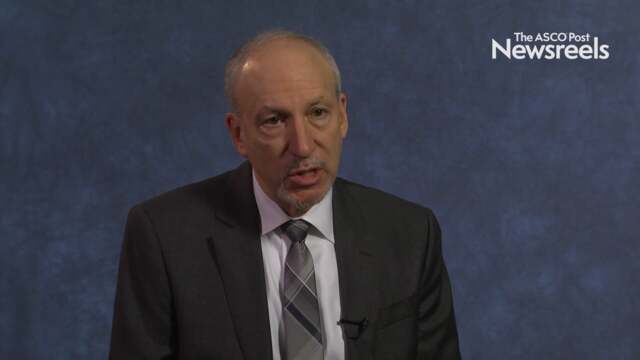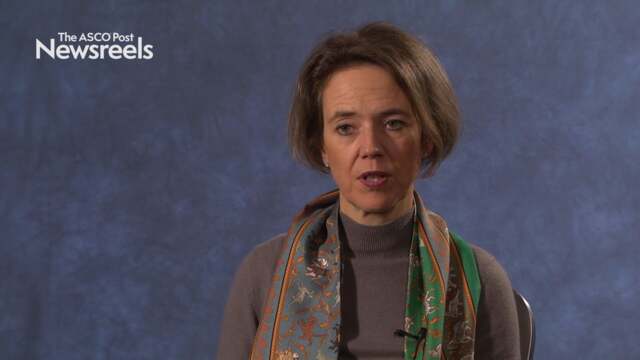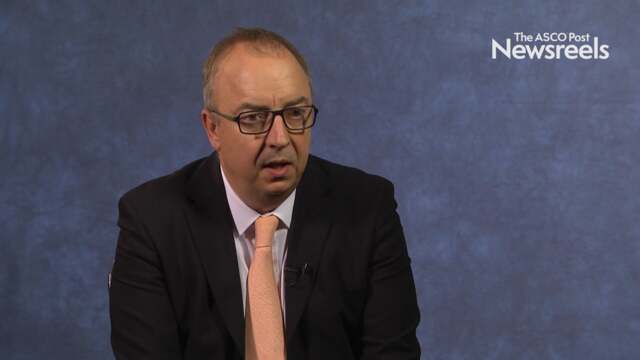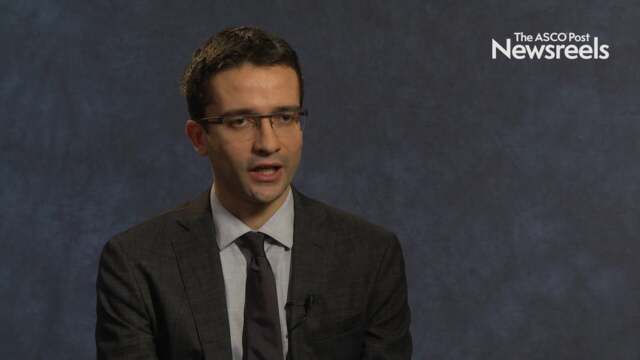Elizabeth A. Mittendorf, MD, PhD, on Immunotherapy in Breast Cancer: Expert Perspective
2017 San Antonio Breast Cancer Symposium
Elizabeth A. Mittendorf, MD, PhD, of The University of Texas MD Anderson Cancer Center, discusses the growing role of immunotherapy in treating breast disease, the evidence of biomarkers that may be associated with response to therapy, and the opportunities to perform robust correlative studies.
Harold J. Burstein, MD, PhD, of the Dana-Farber Cancer Institute, discusses study findings on a comparison of adjuvant tamoxifen plus ovarian function suppression vs tamoxifen in premenopausal women with hormone receptor–positive breast cancer (Abstract GS4-03).
Lee S. Schwartzberg, MD, of the West Cancer Center, discusses phase II study findings evaluating exemestane with or without enzalutamide in patients with hormone receptor–positive breast cancer (Abstract GS4-07).
Sibylle Loibl, MD, PhD, of the German Breast Group, discusses a study evaluating palbociclib plus endocrine treatment vs a chemotherapy-based treatment strategy in patients with hormone receptor–positive, HER2-negative metastatic breast cancer (Abstract OT3-05-04).
Michael Gnant, MD, of the Medical University of Vienna, discusses phase III study findings on giving an additional 2 vs an additional 5 years of anastrozole after the first 5 years of adjuvant endocrine therapy (Abstract GS3-01).
Matteo Lambertini, MD, of the Institut Jules Bordet, discusses the results of five clinical trials investigating temporary ovarian suppression with gonadotropin-releasing hormone analogs during chemotherapy as a strategy to preserve ovarian function and fertility in premenopausal early breast cancer patients (Abstract GS4-01).
